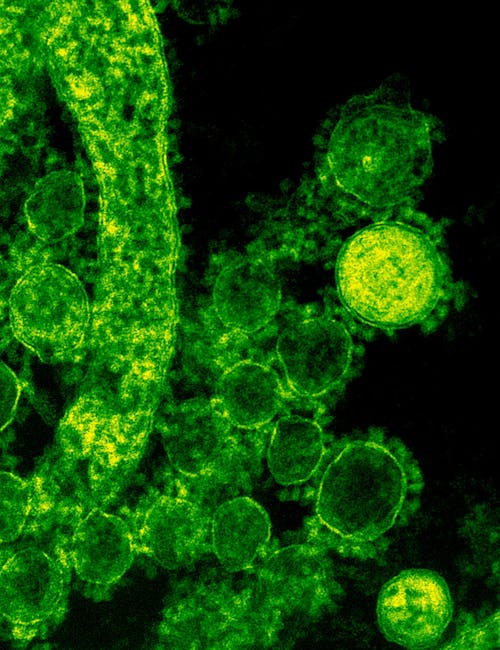Living with Sickle Cell in Ghana: What Every Family Gotta Know

Living with sickle cell disease ain’t no walk in the park, especially in Ghana where resources can sometimes feel like finding a needle in a haystack. If you’re here, chances are you or someone dear to you is on this bumpy ride. Let’s get into what life’s really like and what every family needs to know to thrive despite sickle cell disease in Ghana.
Understanding Sickle Cell Disease
Sickle cell disease is a hereditary blood disorder. It results from a mutation in the gene that instructs your body to make hemoglobin — the protein in red blood cells that carries oxygen. In this condition, cells turn rigid and sticky, forming a crescent or “sickle” shape. This shape complicates their movement through blood vessels, causing blockages, pain, and more.
You might wonder, “Why’s this so common in Ghana?” Well, sickle cell disease thrives in malaria-prone areas. The sickle cell trait offers some malaria resistance, explaining its prevalence in sub-Saharan Africa, Ghana included. Understanding this genetic and historical backdrop helps in planning interventions and educating communities about genetic counseling and testing.

Tackling Challenges of Living with Sickle Cell in Ghana
Living with sickle cell in Ghana? The challenges can feel like a never-ending uphill battle. Access to healthcare is a biggie. Many rural areas lack the medical facilities and experts familiar with sickle cell disease. This often means long travels for treatment, which isn’t always doable. The financial strain of these trips, alongside medication and hospital costs, can be overwhelming. Families often face tough choices between healthcare and other essentials.
There’s also a stigma attached to this disease. Misunderstandings lead to misconceptions, making it hard for individuals with sickle cell to find acceptance. Hold on though! Awareness is spreading, and organizations are working hard to educate folks. Initiatives aimed at reducing stigma through community programs and school education are gradually changing views, easing societal integration for those with sickle cell.
Healthcare and Treatment: A Rocky Road
In Ghana, healthcare is a mixed bag. Urban areas might have better facilities and specialists, but rural areas aren’t left entirely in the dust. Community health workers step up, providing education and basic care where it’s needed most. Their role is crucial as they often serve as the first point of contact, guiding families on managing symptoms and when to seek further medical help.
Regular check-ups are essential. They help monitor health and catch complications early. Pain management is vital too. If you’ve ever felt the sharp, disabling pain of a sickle cell crisis, you know how important it is to have pain relief strategies ready. In Ghana, traditional pain relief methods sometimes join hands with modern medicine, with holistic approaches gaining ground. But it’s essential to consult healthcare professionals to ensure these methods enhance rather than hinder effective treatment.

Importance of Nutrition and Hydration
Let’s chat about food and water — stuff we all dig. Keeping a balanced diet and staying hydrated are key for managing sickle cell disease. Fruits, veggies, lean proteins, and loads of water help keep your body in top form. Access to nutritious foods can be tricky, especially in rural areas, but local markets often offer seasonal fruits and veggies that can make a big difference.
Why’s this crucial? Good nutrition supports your immune system, vital when dealing with a chronic illness. Staying hydrated prevents sickle-shaped cells from clumping, reducing crisis risk. Community programs teaching families how to whip up balanced meals on a budget are increasingly essential, empowering individuals to manage their health through diet.
Building a Support System: You Got This!
Nobody should face this journey alone. Building a strong support system is crucial. Friends, family, and support groups offer emotional and practical help. Sharing experiences with others who get it can be incredibly comforting. Support groups not only offer emotional help but also serve as platforms for sharing practical tips on managing daily challenges.
Consider joining a local support group or online community. Many find comfort in connecting with others facing the same hurdles. It’s a reminder you’re not alone, and a whole community is ready to stand by you. Such networks can be invaluable, offering a sense of belonging and a source of strength when times get tough.
Educational and Employment Considerations
Education and employment bring their own hurdles, but they’re not insurmountable. Schools in Ghana are becoming more aware of sickle cell disease, making accommodations for students who need them. Open communication with teachers and employers is vital. They can’t help if they don’t know what’s up. In educational settings, understanding and accommodations can make a significant difference in a student’s success and inclusion.
In the workplace, knowing your rights is key. Employers must provide reasonable accommodations, and many are willing to do so if you explain your situation. Advocacy groups work to ensure policies protect individuals with sickle cell disease, promoting an inclusive work environment where people can thrive professionally.
Frequently Asked Questions
How can families support a loved one with sickle cell disease?
Support comes in many flavors. Encourage regular medical check-ups, assist with medication management, and offer emotional support. Educate yourself about the disease so you can advocate effectively. Being informed enables family members to provide better support and make informed care and treatment decisions.
What are some signs of a sickle cell crisis?
A crisis often involves severe pain, usually in bones, chest, or abdomen. Other signs include fever, swelling, and difficulty breathing. If you suspect a crisis, seek medical attention pronto. Spotting these signs early can lead to timely intervention, reducing crisis severity and improving outcomes.

Are there any traditional remedies that can help manage sickle cell symptoms?
Some traditional remedies might offer relief, but approach them with caution. Always consult healthcare professionals before trying new treatments. They ensure new remedies don’t clash with existing treatments. Blending traditional and modern approaches can be beneficial under medical supervision.
Conclusion: The Power of Community
Living with sickle cell disease in Ghana is a challenge, but it’s also a journey filled with resilience and community support. By understanding the disease, accessing proper care, and building a robust support network, families can tackle these challenges more effectively.
Remember, you’re not alone. There’s a community ready to support you every step of the way. Keep educating yourself, stay connected, and don’t hesitate to reach out for help. Together, we can make life with sickle cell disease a bit easier. As awareness grows and resources improve, there’s hope for a brighter future for those living with sickle cell disease in Ghana.









